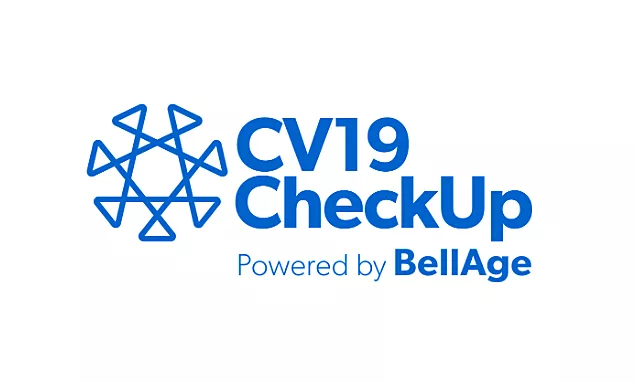If you find yourself worrying about your risk of contracting the coronavirus during the ongoing pandemic, the Aging and Adult Services Agency at the Michigan Department of Health and Human Services (MDHHS) has announced their launch of CV19 CheckUp in Michigan – a free, anonymous, personalized online tool that evaluates someone’s risks associated with COVID-19
The service is in partnership with BellAge, Inc. and can be used by going to this link: http://Michigan.CV19Checkup.org.
Dr. Alexis Travis, Senior Deputy Director of the Aging & Adult Services Agency, says, “This tool, which we will make available to all Michiganders, helps individuals understand their risk based on their life situation and personal behavior, and offers recommendations to reduce those risks while also connecting people to services if needed.” He adds, “And while this tool is available to all residents, it is specifically designed with older adults – age 60 and over – in mind. Older Michiganders represent 24-percent of confirmed COVID-19 cases and 89-percent of confirmed deaths. We are dedicated to keeping aging adults safe and healthy and believe this tool will help older adults stay safer and healthier as cases continue to grow.”
BellAge developed the tool to help people be safer and healthier, and ensure their individual needs are met during the pandemic. CV19 CheckUp fills a critical need for a comprehensive resource that educates, advises and empowers people to protect themselves from COVID-19.
CV19 CheckUp uses artificial intelligence to analyze data each person provides by completing an online questionnaire. It is designed for those who are considered high risk, including older adults, low-income people, ethnic and racial minorities, and LGBTQ communities. The tool’s algorithms are driven by science and medicine, using data from the U.S. Centers for Disease Control and Prevention (CDC) and the World Health Organization (WHO). It is anonymous and does not require a name, email address or identifier of any type.
Upon completion of the anonymous questionnaire, CV19 CheckUp immediately delivers a personalized report. The report answers questions such as:
- How likely am I to get COVID-19 or spread it to others?
- If I get COVID-19, how severe would it likely be?
- Where can I find help to ensure my needs are met during the pandemic?
The individualized approach that defines CV19 CheckUp delivers much-needed support to those who are hardest hit by COVID-19, including the more than 2.4 million Michiganders age 60 and older, as well as those with underlying health conditions and/or compromised immune systems. The CDC has described these people as being at higher risk of severe or fatal consequences if they are infected with COVID-19.
CV19 CheckUp is easy to use and assesses each person’s unique situation, presenting options to help reduce risk and enhance quality of life.
Jim Firman, Chief Innovation Officer at BellAge, Inc., tells us, “CV19 CheckUp was developed to fill an urgent public need,” adding, “Our team realized that although there are many resources with information about the virus, all of them require a lot of effort by the user. The average person has to spend considerable time on numerous websites, digging through pages of information looking for answers that are relevant to their specific situation. CV19 CheckUp does the work for them. We developed a hyper-personalized tool that makes it easy for anyone to understand their level of risk and take steps to reduce those risks.”
In addition, through CV19 CheckUp, governments and health organizations also receive data that helps facilitate developing methods to target populations that are at high risk for COVID-19. Data are completely anonymous, and findings can be used to gain insights on:
- What people know and believe about the pandemic.
- Compliance levels with recommended safety protocols.
- Behaviors by location, race, ethnicity, economic status, etc.
- Unmet needs for health care, social services, financial support.
The project is funded in part by the Michigan Health Endowment Fund.






